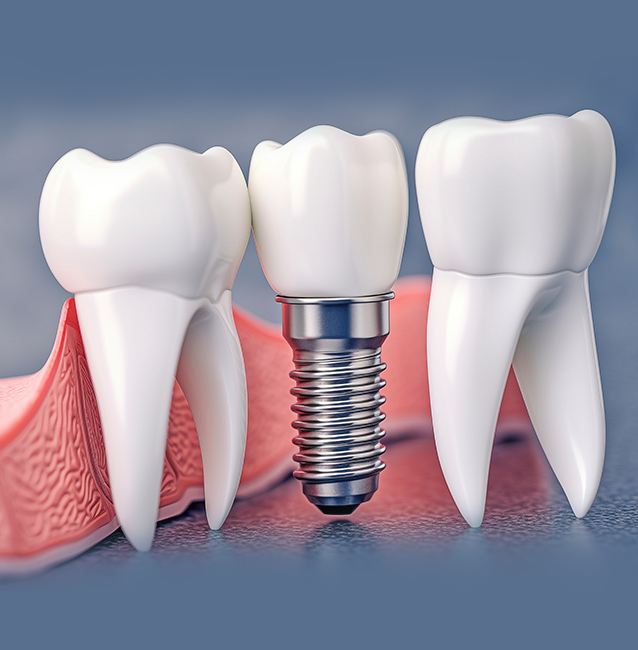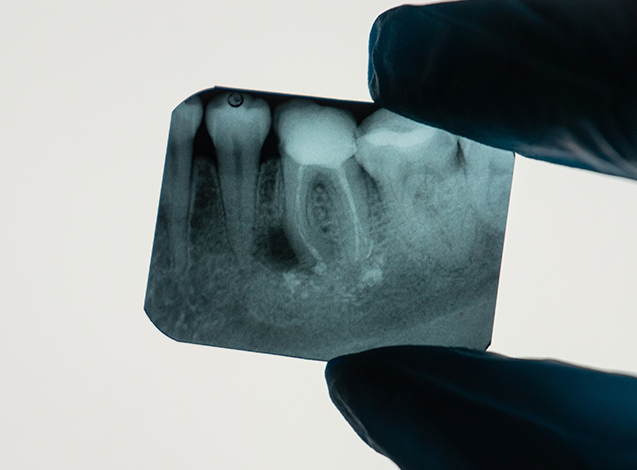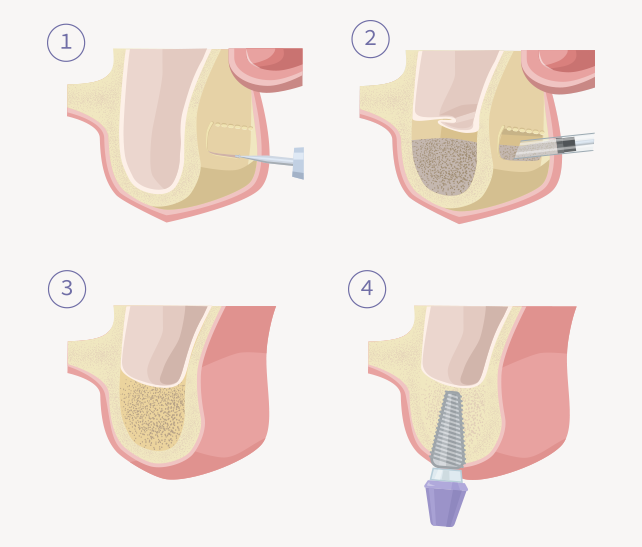A dental implant is essentially a titanium screw that’s inserted into the jawbone to substitute for a missing tooth root. Over time, the bone surrounding the implant naturally fuses with it, securing it firmly in place.
Our dental specialists will affix an artificial tooth, commonly referred to as a crown, onto the implant. This crown will be customised to match the colour and shape of your natural teeth, providing a permanent and aesthetically pleasing solution for restoring your smile.
If the absence of teeth is making you feel self-conscious or impeding your oral functionality, consider visiting Thousand Smiles. Our skilled dental surgeons can place a dental implant to replace your missing teeth, helping you regain your confidence and oral health. For reliable dental implants in London, Thousand Smiles is your go-to dental care provider.

When dental implants are surgically placed in the jawbone, they serve as missing teeth roots, and when the titanium post fuses with the bone, you can fit dentures, bridgework or crowns on it. The dental implant doesn’t decay, and like your natural teeth, it will support the visible part of the dental restoration.
Generally, dental implants may be a good option if

Dental implant placement surgery has some health risks, like any surgery. However, problems rarely occur, and when they do, they are easily treated and minor. The possible risks are

The dental implant planning process may involve different specialists, such as the
Dental implant placement requires one or several surgical procedures, so undergoing thorough evaluation to prepare for the process is vital.
Our dentist will take 3D images, x-rays, and models of your teeth and jaw.
Ensure you inform our doctor about any medical conditions and current medications, including over-the-counter and prescription supplements and drugs. If you have orthopaedic implants or a heart condition, you may need antibiotics before the procedure to prevent infection.
Our dental professional will create a treatment plan for you taking into account factors such as the number of teeth you want to replace and the condition of your remaining natural teeth and jawbone.
You will get local anaesthesia, sedation, or general anaesthesia to prevent discomfort during the implant placement. Our professional dentist will advise you on the most suitable.
Fitting dental implants is an outpatient procedure carried out in stages with healing time between the procedure. The implant placement involves several steps. These steps include:
The procedure can take several months, most of which is for your healing and new bone growth. Depending on your case, you may need additional procedures.
If your jawbone is overly soft or is not thick enough to support the implant, you may require a bone graft before the implant surgery. Grafting is necessary because chewing exerts great pressure on the bone, and if the bone can’t support the implant, the procedure will fail.
We have several bone graft materials for rebuilding the jaw. Your options include synthetic bone graft, like a bone-substitute mater, or bone from another body part. We will advise you on the most suitable for your situation.
The transplanted bone may take a few months to grow enough to support your dental implant. However, in some cases, the bone grafting and implant placement will be during one procedure.
During the implant placement procedure, the oral surgeon will cut your gum to expose the bone, then drill a hole into the bone to place the metal post. This post is the artificial tooth root and will remain securely in the bone.
The dentist may fit the temporary denture or crown to cover the gap where the missing tooth is. You can remove this dental restoration while sleeping or when you want to clean your denture.
After the metal implant placement in your jawbone, the osseointegration process will begin. Your jaw bone will grow around the implant post, which may take several months. It will create a solid base for the new tooth.
After osseointegration, you may require additional surgery to place the abutment, the area where the dentist will attach the crown. The procedure is a minor one, which doesn’t require local anaesthesia.
Your abutments placement may also be during the implant placement, so you will not need additional surgery. The abutment will remain above the gum line and is visible until the prosthesis placement. After the abutment placement, your gums will heal for about two weeks before placing the artificial tooth.
After your gums heal, our dentist will take your impressions to make your crown. You can place the crown until your jawbone is strong enough to support your new teeth. Depending on your needs, you may choose removable or fixed dental restoration.
After your dental implant placement, you may experience some discomfort, usually:
You may have to take antibiotics or pain medications after getting dental implants. If the discomfort, swelling or any other problem worsens the days after the procedure, contact the oral surgeon.
After your implant placement, we advise eating soft foods until the surgical site heals. Usually, we use dissolving stitches, so you won’t need another appointment to remove stitches.
You can ensure your dental implants and natural teeth last longer with the following:
Book regular dental check-ups to ensure the proper functioning of your dental implants and oral health
Like your natural teeth, ensure your implant and the artificial tooth are clean. You can use interdental toothbrushes to clean between your gums, teeth and metal posts.
Avoid chewing on hard objects like ice, including hard foods, which can damage the crown. Avoid caffeine products and tobacco. If you grind your teeth, ensure you get treatment.
Thousand Smiles has experienced dentists who can handle your dental implant placement to replace missing teeth. Visit our dental practice or call 020 8050 0280 to schedule your dental implant consultation.